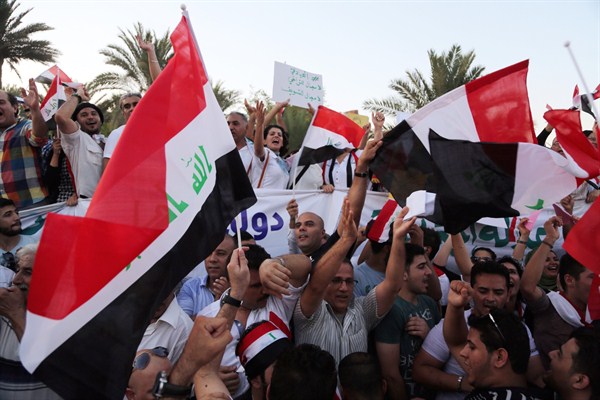For months, the critical issue for Iraq has been its capacity to win back territory in its western provinces controlled by the so-called Islamic State (IS). The focus abroad has been on building an international coalition to support Iraqi forces; enabling various Kurdish militias to do their part in the war against IS; and strengthening Iraqi resolve, particularly among Sunnis, to see the IS threat in all its dimensions and reinvigorate Iraq’s national capacity and purpose. But in Baghdad, other dynamics are in play. Earlier this month, Prime Minister Haider al-Abadi followed through on pledges to take on corruption and governance shortcomings. Abadi is doing the right thing, while being honest and open that the losers in his new drive to make Iraq’s political class more accountable will fight back. It’s not too late to support the push and pull of democratization in Iraq, but the centrifugal forces—from IS, disaffected Sunnis and increasingly confident Kurds—are surely formidable.
In late July, when Iraqi thermometers hit 50 degrees Celsius, demonstrations broke out in Baghdad and elsewhere in Iraq to protest power shortages and alleged corruption and mismanagement at the Ministry of Electricity. Protesters represented important civil society figures and won the moral and political support of a wider swath of Iraqi elites, rattling the confidence of Abadi’s government. The demonstrations also seemed to reveal some complex intra-Shiite rivalries, further complicating Abadi’s ability to control the situation.
Some political commentators predicted a further weakening of government control, but such dire scenarios were prevented by the intervention of Grand Ayatollah Ali al-Sistani, one of the very few preeminent clerics of the Shiite world. According to political analyst Mustafa Habib, Abadi had the good sense to ask for help from Sistani. Like former Iraqi President Jalal Talabani, before he was sidelined by a debilitating stroke, Sistani is a larger-than-life figure who has been able to rescue Iraqi politics from the brink of collapse on more than one occasion. Unlike Talabani, of course, Sistani is not an elected figure—nor is he even Iraqi by birth, having been born in Iran—and prefers to stay above partisan or sectarian politics. But Habib recounted exchanges in which Sistani warned Abadi about underachieving as an agent of change after the polarized politics of his predecessor, Nouri al-Maliki. Abadi got the message and moved quickly to respond to the demonstrators’ demands.

